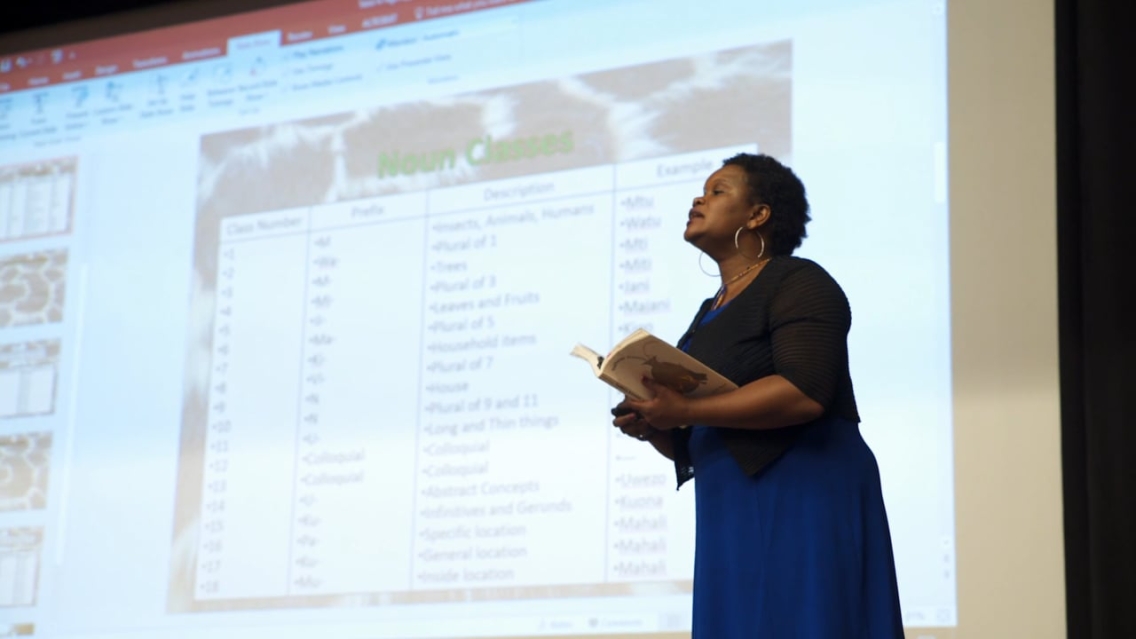J-term Scenes: Swahili and East African Culture [Video]
By Roxana Rivera ’18
MIDDLEBURY, Vt. – Swahili is spoken in more than eight African countries and has more than 100 million speakers, notes winter term instructor Waithera Roki, who taught Introduction to Swahili and East African Culture again this year. To the 12 students who were fortunate enough to make it into her four-week intensive, Roki emphasizes the importance of pairing language with culture.
“Swahili does not occur in a vacuum,” she says. “It is spoken by a people with a culture, traditions, and a history.”
As a former learner of foreign languages herself, Roki remembers the teaching and learning styles that were most effective for her and tries to incorporate those methods into her class. She plays songs in Swahili, urges close reading about the culture, encourages students to write in their journals, and always reminds them to greet their peers before speaking.
Amanda Werner ’21 says her love of learning languages sparked her interest in taking this J-term course. “The Swahili language is spoken by a people with a unique culture of affirmation and positivity,” said Werner.
Despite the speed and rigor with which the class progresses, Werner has been happy to realize how much she can understand and respond to immediately. She says she owes a large part of her success so far to Roki, who has been a very effective instructor. “She tells us to leave our negativity at the door so that we are able to have a good class,” said Werner.
Students are expected to participate intensely during their four-week course. Textbooks provide a basis for learning about language and culture, but students also write in journals to measure their growth. “Every day we have to write in a journal in Swahili,” said Werner about halfway through winter term. “I’m now able to fill up a page with complete sentences.”
Because her class is only offered during J-term, Roki designed the curriculum of the class to assure that students learn effectively. Four weeks, she notes, is not enough time to learn the complex language, but she feels gratified when she sees students transformed by the learning experience. “It is rewarding when students come back to me and say, ‘You know what? It is because of your class, your history, the passion you have for the language, that I went to Africa.’”
By the end of the four weeks, she hopes students will remember the most important lesson of all: “Life really is just about one common variable, and that is happiness.”


